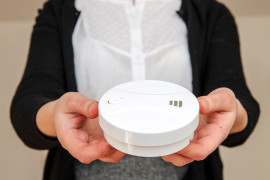The symptoms of allergies, hay fever, and a common cold are often quite similar, so it can be difficult to tell the difference between those conditions based on symptoms alone. These symptoms include having a runny nose, excess mucus in the throat, sneezing, and other ear and nose disruptions.
When children are affected by these symptoms, they may become irritated or moody. This is usually because children have a limited ability to express their discomfort verbally; this may lead to undesirable behaviour at school or rebellious behaviour at home. If you have a young child at home, make sure you properly identify the issue at hand and not confuse these symptoms with learning or attention disorders.
Understanding Allergies
Allergies are usually caused by ‘allergens’ that lead to an overreaction by the immune system because it is hypersensitive to the allergen. These allergens are usually foods, but may also be chemical substances or particles in the surroundings or bites from certain animals and insects that may have venom. Every food item could potentially be an allergen.
However, if allergies are not correctly identified, it could lead to more violent bodily responses or even cause death. Some of the most common allergies may include dairy products and nuts. Symptoms of allergies can come in a wide spectrum, from sneezing on the lighter end all the way to vomiting and swelling up on the serious end.
Understanding Hay Fever
Being a special kind of allergy, it is also known as allergic rhinitis in the medical world. It is usually an immune system overreaction to harmless substances such as pollen grains. The substances that cause discomfort are usually harmless, but the body mistakenly identifies it as a pathogen and attempts to destroy it, leading to cold like symptoms.
Reactions are generally seasonal and occur when specific plants pollinate in the year. Depending on which season your symptoms usually occur, you may be able to identify what types of pollen and natural proteins you are allergic to. For example, trees pollinate in spring, grass and weeds pollinate during summer, and fungus spores during fall.
How to Differentiate Between the Two
Generally speaking, allergies can occur at any time of the year and can be prevented by avoiding exposure to the relevant allergens. Allergies also have the potential of causing much more violent reactions, while hay fever is usually seasonal and is triggered by unavoidable proteins carried by the wind from certain plants.
Find Out More from A Doctor
If you suspect you have an allergy, visit your family physician. They may take a blood sample from you or perform other tests to determine if you have an allergy or find out what you are allergic to. Stay in enclosed and air conditioned indoor spaces away from the substances that irritate you and do not consume foods that may cause an immune system overreaction.
If you have the relevant symptoms, your doctor may prescribe you medication to relieve you of your stress depending on your medical history. If you have a young child or elderly person, special medication may be required.










Comments are closed.